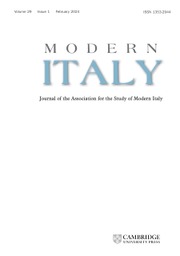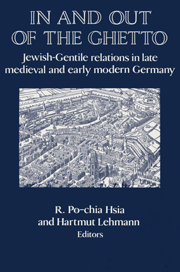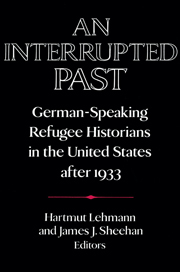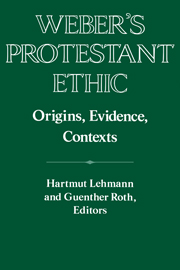Paths of Continuity
Paths of Continuity examines the impact of the Third Reich on the German historical profession before and after 1945. The essays look at ten prominent historians whose lives and work spanned the period from the 1930s to the 1960s. Their response to the Nazi regime ranged from open resistance to willing collaboration. Ironically, however, much of the impetus for scholarly innovation after 1945 came from historians with earlier ties to the antiliberal 'folk history' of the Nazi era. All in all, this insightful collection of essays provides fresh insight into the development of West German historical scholarship since 1945.
- An analysis of the varying responses of ten prominent German and Austrian historians to the Third Reich
- Assesses scholarship and developments within the profession from 1930s to 1960s
Reviews & endorsements
"The scholarship...is of a very high quality, meticulously documented, and argued with great sophistication." H-Net Book Review
"Judged as a whole this is a truly splendid volume, carefully edited, intelligently constructed, and offering challenging arguments that open up new and hitherto neglected stands of continuity and discontinuity in German historiography." Hermann Beck, German Studies Review
Product details
January 2003Paperback
9780521531214
420 pages
229 × 152 × 26 mm
0.622kg
Available
Table of Contents
- Preface
- Introduction. Continuities in German historical scholarship, 1933–60 James Van Horn Melton
- 1. German historiography from the 1930s to the 1950s Winfried Schulze
- Comment Georg S. Iggers
- 2. Friedrich Meinecke (1862–1954) Jonathan B. Knudsen
- Comment Ernst A. Breisach
- 3. Change and continuity in German historiography from 1933 into the early 1950s: Gerhard Ritter (1888–1967) Klaus Schwabe
- Comment Thomas A. Brady, Jr
- 4. Hans Rothfels (1891–1976) Klemens von Klemperer
- Comment Douglas A. Unfug
- 5. Franz Schnabel (1887–1966) Lothar Gall
- Comment Hartmut Lehmann
- 6. Heinrich Ritter von Srbik (1878–1951) Fritz Fellner
- Comment John W. Boyer
- 7. 'Historical social science' and political myth: Hans Freyer (1887–1969) and the genealogy of social history in West Germany Jerry Z. Muller
- Comment Roger Chickering
- 8. Some observations on the work of Hermann Aubin (1885–1969) Marc Raeff
- Comment Edgar Melton
- 9. From folk history to structural history: Otto Brunner (1898–1982) and the radical-conservative roots of German social history James Van Horn Melton
- Comment Steve Rowan
- 10. Werner Conze (1910–86): the measure of history and the historian's measures Irmline Veit-Brause
- Comment Peter Reill
- 11. Continuity, innovation, and self-reflection in late historicism: Theodor Schieder (1908–84) Jörn Rüsen
- Comment Charles S. Maier
- Index.

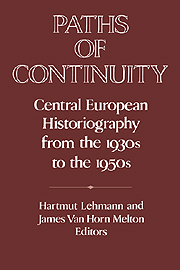
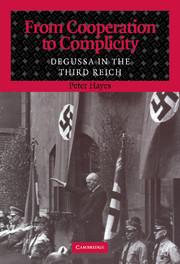
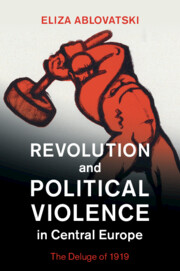


.jpg)
.jpg)
